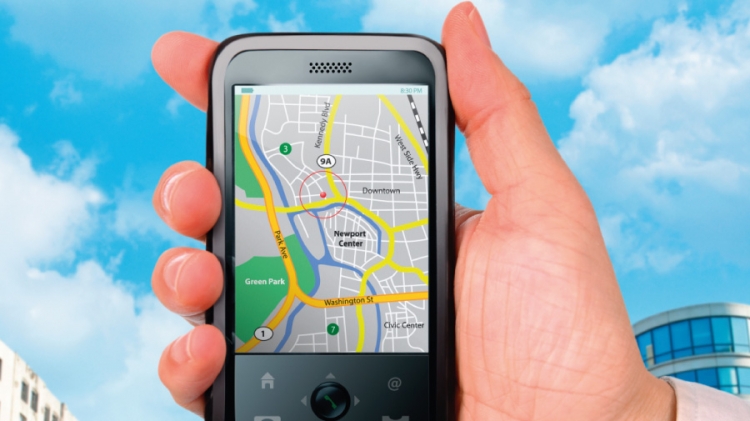
One of the hardest things to do is make a meaningful change in your life. Every New Year’s we declare our resolutions for everything from weight loss to money saving to recycling.
Most do not last longer than a few weeks. It is no wonder, then, that a whole self-help industry is dedicated to helping people turn good intentions into positive action. Still, most of us find it very difficult to improve our habits.
Now imagine trying to bring about that sort of personal behavioural change on a massive, nationwide scale, where every man, woman and child makes a change towards something better.
Difficult, yes – but not impossible. Australia managed to drastically reduce its skin cancer rates through its “Slip-Slop-Slap” campaign, which taught a whole generation to “slip on a shirt, slop on sunscreen, and slap on a hat” before exposing their skin to the harmful rays of the sun. But for all the successful changes brought about through marketing, campaigning and legislation, there are many more small but equally important personal behaviour changes that remain a challenge to implement.
Just think of your own life – how many times have you promised yourself that you will go to the gym regularly, or spend more time with your children, or even just turn the lights out in empty rooms of your house. And how often have you actually fulfilled that promise? Not often. But we hope that will soon change.
Today we all have access to some amazing tools that previous generations could only have dreamed of. The average UAE adult uses a computer and a mobile phone, and many carry smart phones. We have access to the kind of computing capacity that in the past would run an entire office or company.
Smartphones in particular offer amazing potential for application programming and data collection. It is that potential that my team at the Masdar Institute of Science and Technology is hoping to tap into to help UAE residents meet their goals for sustainable living.
We are researching how modern mobile and sociometric technologies can help provide unprecedented access to real-time data about collective human behaviour, such as people’s movement patterns, or their social interaction.
My counterpart at the Massachusetts Institute of Technology, Professor Sandy Pentland, has shown how mobile phone data – patterns of location and communication – can be used to predict whether a person has a fever, influenza, stress or even mild depression.
Technologies and systems like these can help us understand collective behaviour – and influence it. My current project aims to develop intelligent distributed software that can influence collective behaviour with a goal to help people use resources more efficiently.
Unlike previous work in this area, we hope to take advantage of the structure of the modern social network in order to effect behavioural change.
Our project spans game theory, network theory, computer science, and social science and uses techniques like theoretical modelling, system development, and empirical experimentation. The aim is to develop a set of technologies that can be used to inspire collective sustainable behaviours such as reducing electricity use.
We believe that by using today’s wired lifestyle, we can help people make the kind of changes they feel are good and worthwhile. For instance, linking personal technology tools (smartphones, for example) to our system lets us analyse their behaviour according to their desired goal and then set up a friendly competition to help them reach that goal.
Users could be shown their own behaviour (like driving a car to work) along with a comparison to the alternatives (such as taking a bus) engaged in by their friends and family. Simple social rewards like bragging rights are “won” by those with especially good behaviours or those who find new “greener” behaviours.
Science and common sense both say that tacit social incentives such as increased status among people whom you spend the most time with is a stronger impetus to change than either information feedback or explicit rewards.
This is already being done in a limited way through projects such as the one by the OPower company, which provides feedback to electricity consumers by showing on their bills how their energy use compares with similar-sized households of their peers. Their approach has proved to be effective in reducing consumption.
Further developing these sorts of technologies and systems can further the UAE’s sustainability in a number of ways. One of the most widely anticipated uses is smart-grid sensor information displays, which can show electricity users how much energy each specific appliance is using, to help them make better choices.
Another potential application in mobile phones uses sensors and self-reporting to provide positive feedback to the phone user on their sustainable transport choices.
A third application is the creation of programs that help co-ordinate sustainable behaviours like car-sharing, by utilising user preferences, destinations from GPS logs and calendars while accounting for time, fuel use, and environmental and cognitive costs, to help users effortlessly make green transport choices.
Harnessing the agility, adaptability and ease of use of today’s high-tech gadgets, Masdar Institute hopes to help Abu Dhabi reach its goals for sustainability and renewable energy use.
Dr. Iyad Rahwan is an assistant professor in computing and information science at the Masdar Institute of Science and Technology
http://www.thenational.ae/news/uae-news/technology/why-not-a-phone-app-for-sustainability